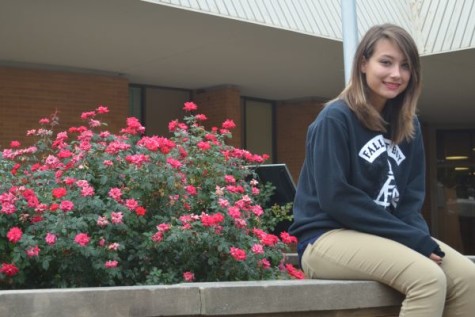Central Recognizes September as Sickle-Cell Anemia Awareness Month

A FACE OF THE BATTLE — Latisha Lawrence is remembered by her character and her willingness to help others.
September 26, 2015
Mr. Finley King, the principal of Central High School, announced a few weeks ago that September is Sickle-Cell Anemia Awareness Month. Most students have no concept of what this disease is or why the announcement was made. One Central student’s family has been deeply affected by sickle-cell anemia – her name is Takaela Lawrence. Her mother, Latisha Lawrence, passed away from this disease on July 4, 2011.
“She was a good person. You would not have known [that] she was sick like she was. She always helped people – she formed a Girl Scout troop for the girls in the neighborhood,” Takaela reminisced.
Sickle-cell anemia targets the hemoglobin in the infected person’s blood. Hemoglobin is responsible for carrying oxygen throughout the body. Instead of their shape being disc-like, the hemoglobin take a crescent/sickle form. This shape prevents the hemoglobin from flowing freely, and because of this, they stick to vessel walls. This prevents oxygen from flowing, which can cause sharp pains called pain crises.
The disease is not contagious, but it is acquired through genes. Someone with the sickle-cell trait may not be infected with the disease, but they would pass the gene down to their children. If both parents pass down the sickle-cell trait, then the child would be infected with the disease.
The only cure for sickle-cell anemia is a hematopoietic stem cell transplant, and it is very hard to find a genetic match. This transplant is risky for adults, and it is even more difficult for them to find a donor. It is common for people with the disease to take penicillin and hydroxyurea, an oral medication.
“It’s like every other disease – people need to know [about it]. People with sickle-cell need blood, which is something that is hard to come by. They have blood drives and camps for it sometimes,” Takaela said.
“[My mother] had to have a lot of transfusions,” she added.
African Americans are especially at risk – 1 in 365 children of African descent have the disease, and 1 in 13 carry the trait. Right now, about 100,000 people are infected with sickle-cell anemia. The Central Digest is committed to spreading awareness for sickle-cell anemia and to seeing an end to this terrible disease.




